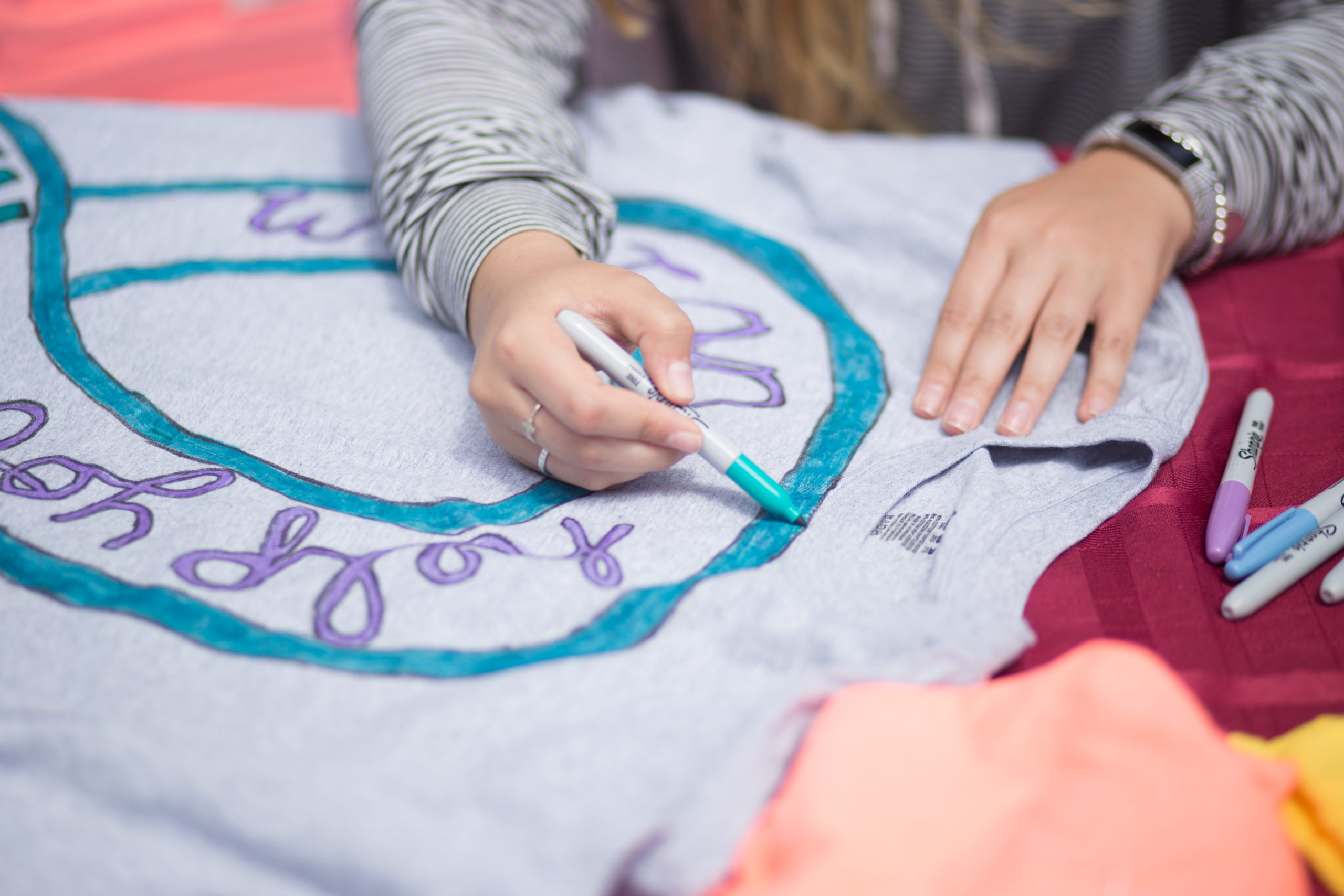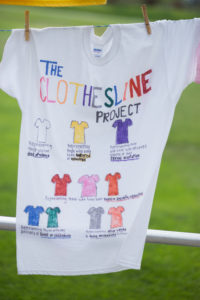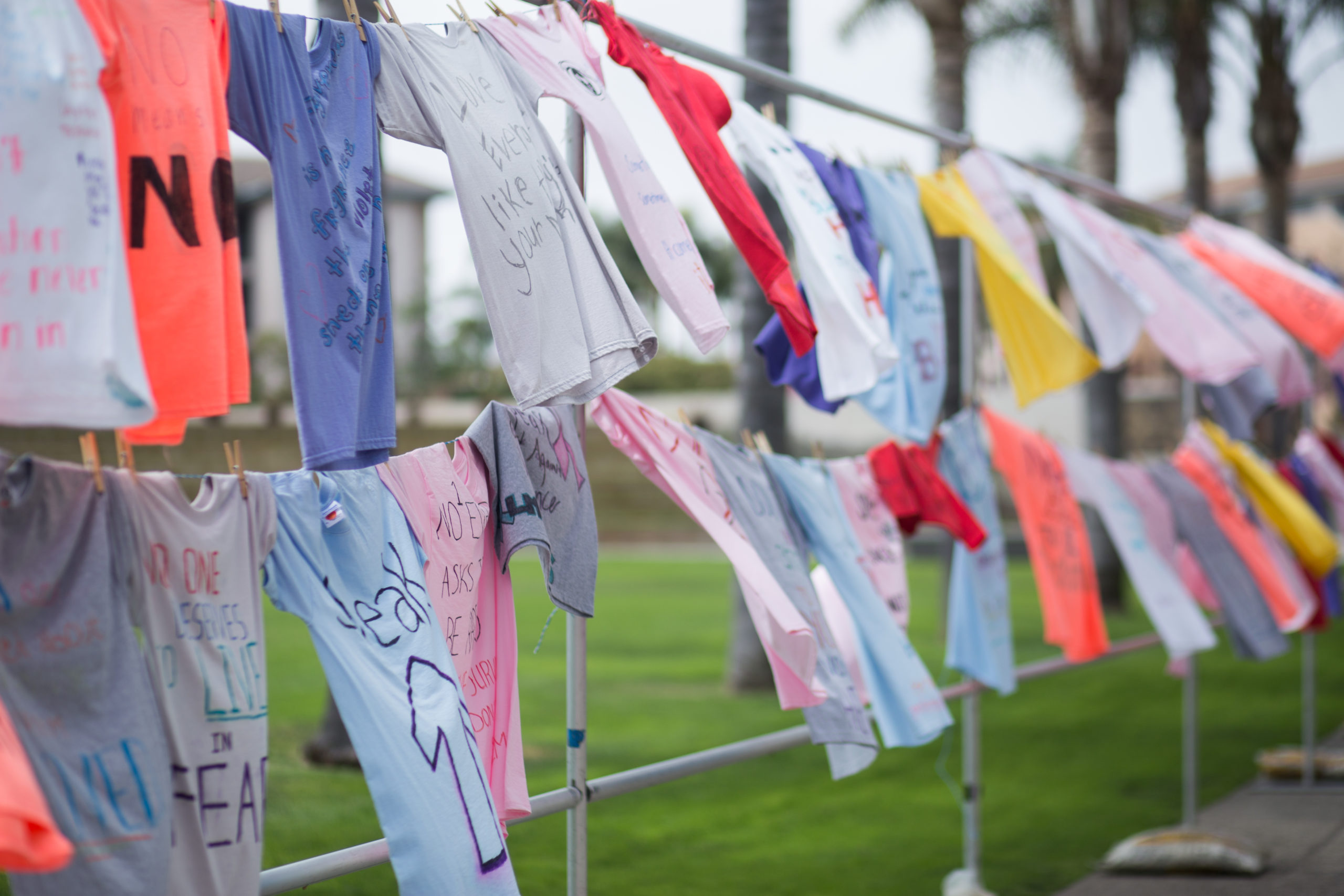Monday, April 18 through Friday, April 22, LMU CARES hosts the annual Clothesline Project on VDA Palm Walk. Decorated T-shirts hanging on the clothesline represent those affected by sexual and/or interpersonal misconduct by expressing their emotions. The T-shirts hang on a clothesline to be viewed by the community and bring awareness to these issues.

Content Warning: This project provides space for people to process sexual and/or interpersonal misconduct (Can refer to sexual harassment, sexual assault, dating violence, domestic violence, and stalking.) Engage with this project in a way that feels safe to you.

The Clothesline Project got its start in Cape Cod, Massachusetts, in 1990 when a member of the Cape Cod’s Women’s Defense Agenda learned that during the same time that 58,000 soldiers were killed in the Vietnam War, 51,000 U.S. women were killed by the men who claimed to love them. That harrowing statistic motivated the group to create a program that would directly address the issue of violence against women. One of the women in the coalition, visual artist Rachel Carey-Harper, thought of hanging color-coded T-shirts on a clothesline in a public place to gain recognition for the issue.
The project and display continue on college and university campuses across the U.S. The Clothesline Project started at LMU over nine years ago, and someone in the Lion community makes every shirt on display. Each T-shirt color represents a different type of violence:
- White represents someone who has died of violence;
- Red, pink, or orange represent survivors of sexual assault;
- Yellow represents survivors of physical assault or domestic violence;
- Blue or green represent survivors of incest or child sexual abuse;
- Purple represents survivors who have been sexually or physically assaulted because they are a member of the LGBTQIA+ community;
- Gray or coral represent survivors of other forms of violence and abuse;
For more information on Sexual Assault Awareness Month, visit the website hub here or to learn more about LMU CARES, visit the website here.
